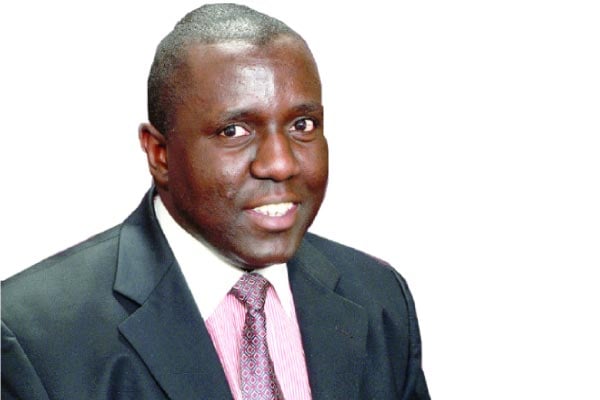Prime
Activists slam government over Shs72 trillion budget

The executive director of Food Rights Alliance, Agnes Kirabo and the executive director of CSBAG, Julius Mukunda speaking to reporters. PHOTO/ BUSEIN SAMILU
Members of different civil society organisations (CSOs) have castigated the government for passing the 2024/2025 financial year budget without thoroughly discussing it.
Pointing out underfunded priorities and the speedy manner in which legislators discussed and passed the Shs14 trillion corrigenda on May 16, the activists said the government was not realistic since most of it appear to have minimal benefits or programmes that directly impact the majority poor Ugandans.
The government is scheduled to formally unveil the Shs72.13 trillion 2024/25 National Budget tomorrow at the Kololo Independence Grounds, Kampala.
Mr Julius Mukunda, the executive director of the Civil Society Budget Advocacy Group (CSBAG) told reporters in Kampala that the principles of corrigenda were abused by the government during the passing of the budget.
Referring to the Public Finance Management Act (PFMA), Mr Mukunda said the corrigenda is supposed to correct errors that were not anticipated during the finalization of the budget estimates, changing in the draft budget to avoid additional pressure on items and proposed changes must be backed by documents and lastly corrigenda should not be used to request extra resources for a vote apart from ministries, departments and agencies transferring funds to local governments.
“The controversial Shs14 trillion corrigenda that Parliament approved violates the second and fourth principles of corrigenda. Some of the proposed expenditures in the corrigenda were unproductive; like land for industrial parks in Nakibaale, construction of Akibua Stadium, recurrent funds, among others,” he said in response to the budget at the Southern and Eastern Africa Trade Information and Negotiations Institute (Seatini) headquarters in Kampala.
Legislators on May 16 expeditiously processed and adopted the Shs14 trillion Budget, shortly after it was presented by the State Minister for Finance in charge of General Duties Mr Henry Musasizi. Hours after it was processed, the contents of the Corrigendum were consequently adopted to feed into the initial Shs58 trillion budget estimates thereby resulting in Shs72.13 trillion.
Shadow Finance Minister Ibrahim Ssemuju Nganda said that the few hours that Parliament spent discussing the budget explains any mistake that will be discovered after.
Jane Nalunga, the executive director of the Seatini said the budget does not correspond with its theme of full monetisation of the economy.
“The ministry of trade which is supposed to facilitate trade especially internally has seen its budget reduced from the current Shs170 billion to Shs113 billion, coffee development has been allocated Shs13 billion yet the European Union who buy a big percentage of our coffee have come up with directives we have to meet. You expect to raise 44.9 percent of the budget financing internally but you are not supporting locals yet we are in debt trap,” she said.
Agnes Kirabo, the executive director of the Food Rights Alliance (FRA) said that the reduction of the Agro-Industrialisation Programme budget to Shs1.6 trillion from the current Shs1.8 trillion is a huge negative, especially to farmers.
“We also notice that the programme is still heavily dependent on external financing. We implore the government to consider adequate domestic financing of the Agro-industrialisation programme, especially on components of extension services and post-harvest handling through supporting farmers to improve food security, value addition and marketing of their agricultural products,” she said.
The CSO experts unanimously urged the government to exercise restraint in abusing public finance management laws, leading to leakage and waste of public resources.
“We call for fiscal discipline, transparency, and accountability to ensure sustainable economic growth and development,” she said.
[email protected]




